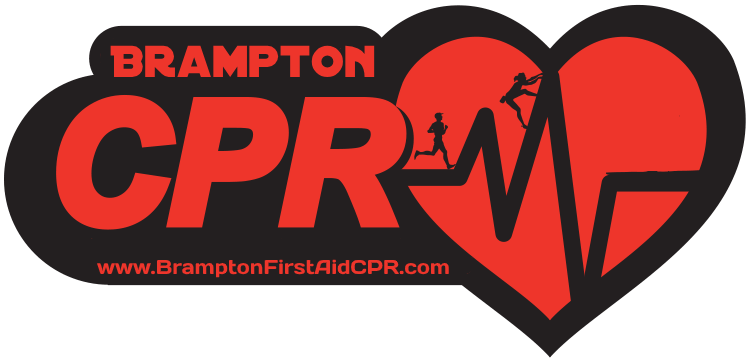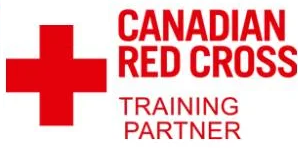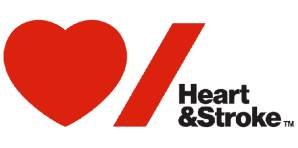FAQs
Frequently Asked Questions
First Aid & CPR Courses
Emergency First Aid vs. Standard First Aid
📌 Emergency First Aid & CPR
- 🕒 Shorter and introductory courses compared to Standard First Aid.
- 🩺 Focus on preventing and responding to emergencies, including:
- Cardiovascular emergencies.
- Choking.
- Breathing emergencies.
- Disease transmission prevention.
- Ideal for those seeking basic first aid knowledge for home or workplace safety.
📌 Standard First Aid & CPR
- 🕒 More intensive and comprehensive training.
- Designed for individuals who require first aid training for work or those looking for an in-depth understanding.
- Covers everything in Emergency First Aid plus:
- Twice the amount of in-class training for more practice and deeper understanding.
- Additional scenarios and techniques to address a broader range of emergencies.
- Perfect for individuals needing certification to meet provincial/territorial worker safety regulations.
Choose the Right Course for Your Needs
✨ Emergency First Aid: Quick, practical, and introductory for basic knowledge.
✨ Standard First Aid: In-depth and tailored for those requiring a higher level of preparedness for work or home emergencies.
Enroll with Brampton First Aid CPR and gain the skills and certification to respond confidently in emergencies.
Red Cross First Aid Courses come in several different levels. We offer the two certifications which are the most sought after in the workplace and for those looking to be prepared for emergencies at home. CPR Level A – CPR Level A is the most common requirement for workplaces in Canada. It is a First aid for Adults Course, and is the most basic level of CPR Certification offered by Red Cross Partners. In this course you will learn how to treat and administer emergency care to Adults. CPR Level C – CPR Level C is a more comprehensive course teaching how to deliver First Aid and CPR to Children and Adults. Due to physiological differences, administering CPR to a child is very different than to a child, so special techniques for children must be taught. CPR C courses are generally taught to first responders such as police and firefighters as well as those who wish to be prepared for any emergencies which might occur at home.
While in the labour marketplace, trades people, security guards, and drivers are those who are often required to receive first aid certifications, First Aid training sessions are useful to anyone who wants to be able to effectively administer help during emergency situations.
Yes, First Aid Courses teach how to correctly and effectively use Automated External Defibrillators (AED). While those who have a heart attack outside of a hospital have about a 5% chance of survival, intervention with a defibrillator can increase the chances of survival up to 75%. Defibrillators save lives and our First Aid Courses will teach you how to use them.
The length of our courses vary depending on the level of training and format you attend (in-class only / blended training). Blended training allows for you to complete roughly half of the course at home online. CPR Level C: In class only: 6 Hours. Blended: 3 hour Online component, 3 hours in class. Emergency First Aid Course: In class only: 8 Hours. Blended: 3-4 hour Online component, 4-5 hours in class. Standard First Aid Course: In class only: 16 Hours Blended: 8 hour Online Component, 8 hours in class. Please note for Blended Training the online components must be completed prior to the in-class training. The length of the online component varies from person to person and can depend on prior experience and knowledge of the material.
Just as traditional first aid helps us understand how to treat physical injuries, Psychological First Aid can help us give treatment to those experiencing the effects of loss, stress, trauma, and grief. Our Psychological First Aid courses place an emphasis on self-care and personal protection while recognizing the signs of psychological distress. The course follows the look, listen, link, live model for identifying and understanding those in need of Psychological First Aid. Psychological First Aid. Psychological First Aid seeks to address the urgent and immediate needs of an affected person in the aftermath of a disaster, and not to provide ongoing therapy. For more information, take a look at our Psychological First Aid Training Course page.
In very general terms, Mental Health First Aid is a broader, more general course designed to help provide assistance to people developing a mental health problem or experiencing a mental health crisis. Psychological First Aid goes into greater detail on how to respond to a person who has experienced a traumatic event. Psychological First Aid is often delivered to health professionals and others with specialist mental health training. Mental Health First Aid Courses are appropriate for the general public, including non-healthcare professionals, so that they can assist someone who is developing a mental health problem or experiencing a mental health crisis. We offer both Psychological First Aid Training and a Mental Health First Aid Course
Bloodborne Pathogens are microorganisms such as viruses or bacteria carried in blood that cause disease. Bloodborne pathogens can be transmitted with infected human blood as well as other potentially infectious bodily fluids. Those most exposed to the risks of bloodborne pathogens are healthcare workers, disposal workers, emergency and safety workers. Some examples of common bloodborne pathogens are:
- Hepatitis B (HBV)
- Hepatitis C (HCV)
- Human Immunodeficiency Virus (HIV)
There are many methods which should be employed to protect yourself against bloodborne pathogens, such as wearing appropriate personal protective equipment (PPE), treating all blood and body fluid spills as though they are infectious, handing all trash as if it contains sharp and infectious items, and more. For more information on how to keep yourself protected, register for our Red Cross Bloodborne Pathogens (Online Training).
Transportation of Dangerous Goods Training (TDG) is required for anyone involved in shipping, receiving, or otherwise handling dangerous goods. Training must be completed prior to the employee beginning work with dangerous goods. For more information check out our Transportation of Dangerous Goods online course.
Re-certification Courses
📌 Important Information on Standard First Aid Certificate Renewal in Ontario
The Workplace Safety and Insurance Board (WSIB) regulates first aid training in Ontario. Here are the key points regarding the renewal of your Standard First Aid certificate:
✅ One-Time Renewal Option:
- You can renew your Standard First Aid certificate once by completing a one-day Standard First Aid renewal course.
🕒 Timeline for Renewal:
- The renewal must be completed before your original certificate expires.
📋 Provider Requirement:
- The renewal course must be completed with the original provider who issued your current certificate.
🖊️ New Certificate Details:
- Upon successful completion of the renewal course, your new certificate will indicate “renewal” on it.
For more details, please visit the WSIB FAQ Section.
Re-Certification Eligibility and Guidelines
As a Red Cross Training Partner, Brampton First Aid CPR offers re-certification courses for:
- 🩹 CPR C/AED
- ⛑️ Standard First Aid with CPR C/AED
❌ Note: Emergency First Aid is not eligible for re-certification in Ontario due to WSIB Regulations.
Eligibility Criteria for Re-Certification
To qualify for a re-certification course, you must meet the following requirements:
1️⃣ Valid Certificate: Your certificate must still be valid (not expired).
2️⃣ Issued by the Canadian Red Cross: Certificates from other organizations do not qualify.
3️⃣ Certification Type: For Standard First Aid with CPR C/AED, your certificate must indicate you are “certified in” and not “re-certified in”.
How we are addressing COVID-19 concerns
COVID-19 Safety Courses at Brampton First Aid & CPR
🌍 Protect Your Workers and Customers:
Brampton First Aid & CPR offers specialized courses to help your company ensure a safe environment during the pandemic.
Available Courses:
- 🦠 Red Cross Preventing Disease Transmission (PDT) – Online
- 🛡️ COVID-19 Safety Training – Online
- 🏢 Coronavirus Action Plan For the Workplace – Online
Why Choose Our Online Courses?
To maintain social distancing and prevent the spread of the virus, all of our COVID-19 courses are offered online, providing a safe and flexible learning environment.
We Have Resumed Training In Most Regions, Click Here to Register. To See Our New In-Class Training Protocols,.
In addition to our regular selection of First Aid Kits and Supplies, we also sell a variety of surgical masks, reusable face masks, face shields, as well as hand sanitizer. You can view our selection in the PPE Section of our online store.
You can bring your own face mask to the course. Please note the mask is required to remain on during the course. There is a limited supply of disposable masks on site for replacement, should it be needed.
Red Cross Online Courses
Accessing and Activating Your Online Course
1️⃣ Navigate to the My Courses Page:
- From your My Courses page, click on the “Your Online Training” link.
- This will redirect you to the learning site at:
https://lms.redcross.ca/student/default.php.
2️⃣ Select Your Course Language:
- You will see your course listed twice in the Course Language Selection area—once in English and once in French.
- Click “Activate” next to the language you wish to be instructed in.
3️⃣ Start or Continue Your Course:
- After activation, you will be given the option to enter the course and begin or continue where you last left off.
4️⃣ Completion and Certificate Review:
- Once you have completed the course, you will have the option to:
- Review the course
- View your certificate
📜 Note: The certificate shown at this stage is not your final certificate. However, you may be asked to present it to your instructor.
📌 Certificate Delivery and Access Information
Upon successfully completing the full course (online and in-class):
📧 Digital Certificate:
- A .pdf copy of your certificate will be sent to your email.
- The certificate will be issued by the Canadian Red Cross.
🌐 Access Anytime:
- You can also access your certificate anytime in your Red Cross account.
- Navigate to the top-right corner of the page and click on “My Certificates”.
For any questions or support, feel free to reach out! 😊
📌 Important Notice
❗ Completion of Online Portion is Mandatory:
- Participants must complete the online portion of their blended course prior to their scheduled in-class session.
🚫 Non-Compliance Policy:
- Failure to complete the online portion will result in denial of entry to the in-class session.
- No refunds will be issued, and your registration will be forfeited under these circumstances.
Please ensure you complete your online training on time to avoid any issues. 😊
Certifications and Methodology
BLS (Basic Life Support) Training
📅 Update Effective January 2019
The Canadian Red Cross has replaced the HCP (Healthcare Provider) course with BLS (Basic Life Support).🎓 About BLS
BLS is a more accurate and up-to-date version of the HCP course, designed to meet the needs of healthcare professionals and first responders.📝 Key Topics Covered in BLS Training
Some (but not all) of the topics included are:- 🧤 Glove Removal
- 🔍 Primary Assessment
- ❤️ CPR
- ⚡ AED Training
- 🚫 Airway Obstruction Management
- 🌬️ Assisted Ventilation
- ⚠️ Basic Life Support Special Considerations:
- Ethics
- The 6 Rights of Medication
- Trauma and Hypothermia
- Post-Cardiac Arrest Care
- And more…
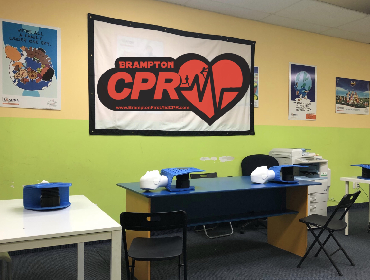
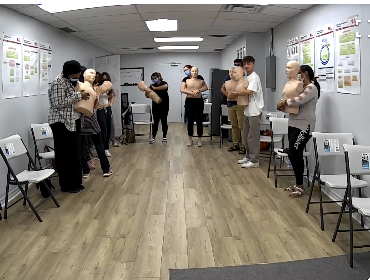
Submit a request
Accessing your Blended Online Training Modules
Accessing Your Online Course
💡 Step 1: Ensure you are logged into your My Red Cross Account
- 👉 Click here if you are not currently logged in.
Steps to Access Your Online Course
1️⃣ Once logged in, click “My Profile” in the menu.
2️⃣ From the dropdown list, select “My Online Courses”.
3️⃣ You will be redirected to the Red Cross Online Learning page, where your course will be displayed.
4️⃣ Select your course in the language of your choice.
5️⃣ Click the blue “Activate” button on the right to begin.
If You Have Not Set Up Your My Red Cross Account Yet
📧 Check your email inbox (including junk/spam folders) for an email from:
my.account@redcross.ca
Subject:
“Action Required: Register for Your New Red Cross Account.”
📌 Follow the instructions in the email to create your account. Once set up, return to the guide above to access your course.
Additional Support
📖 For a visual walkthrough, please refer to this Page.
📞 For technical assistance, contact the Red Cross directly at 1(877)-356-3226.
How do I access my certificate?
Accessing Your Red Cross Certificate
📂 Steps to Access Your Certificate Online:
1️⃣ Log into your My Red Cross Account.
2️⃣ Navigate to “My Profile” > “My Certifications”.
3️⃣ Here, you will find all certificates associated with your account.
Certificate Email Notification
📧 The Red Cross also sends an email with the subject line:
“Your new Red Cross Certification.”
This email includes:
- Steps to log in or register for a new account.
- A PDF version of your certificate for instant access.
Reminder for Recertification Registration
🗓️ Before registering for a recertification class, it’s a good practice to:
- Check the expiration date on your certificate.
Cancellation & Rescheduling
Rescheduling Process
📌 Rescheduling Your Course
If you wish to reschedule your course and meet the eligibility criteria (please review the policies below if unsure):
📝 Submit a Request:
- Notify us through our CONTACT FORM.
- Include your booking number in your request for faster processing.
📅 Have a Date in Mind:
- To expedite the process, please review the upcoming course dates (links provided below) and specify your preferred date in your request.
💼 Service Team Confirmation:
- Once our service team reviews your request, they will confirm the rescheduling with you.
- Rescheduling fees will be applied when we move your booking.
❌ No Need to Register Again:
- You do not need to register for a new course. Simply let us know your preferred date, and we will update your current booking.
Available Course Dates by Location
🔗 Blended Standard First Aid
🔗 Standard First Aid (2-Day In-Class)
🔗 Standard First Aid Recertification
🔗 Blended Emergency First Aid
🔗 Emergency First Aid
🔗 Blended CPR
🔗 CPR
🔗 Basic Life Support (BLS/HCP)
For further assistance, feel free to contact us anytime! 😊
Cancellation Policies
📌 Course Cancellation and Rescheduling Policies
Blended Courses
(Courses that are part online and part in-class):
- ❌ No Cancellations:
- Once registered, blended courses cannot be cancelled as they include an online component.
- 🔄 Rescheduling:
- The in-class portion can be rescheduled with a $25 administrative fee (per person).
- Requests must be made at least 7 business days before the in-class start date.
- Example:
- If your course starts on January 8th at 9:00 AM, the cutoff to reschedule would be January 1st at 9:00 AM.
Fully In-Class Courses
(Courses held entirely in-person):
- 💵 Cancellation/Rescheduling Fee:
- A $25 fee (per person) applies to cancel or reschedule your booking.
- ⏳ Final Booking Policy:
- Bookings become final and non-refundable 48 hours before the course start time.
- No cancellations or rescheduling can be made within this timeframe.
- Example:
- If your course starts on January 3rd at 9:00 AM, the cutoff to cancel or reschedule would be January 1st at 9:00 AM.
Online Courses
(Courses completed fully online, e.g., WHMIS, Psychological First Aid):
- ❌ No Cancellations or Refunds:
- Once purchased, online courses cannot be cancelled or refunded due to their digital nature.
Standard First Aid Recertification Information
Red Cross Online Courses
Certificate Validity and Eligibility for Recertification
📅 Certificate Requirements:
- Your certificate must be issued by the Canadian Red Cross and must not be expired by the time you attend a course.
- For example, if your certificate was issued on December 15th, 2018, you will be eligible to attend a recertification course until December 14th, 2021.
Recertification Eligibility in Ontario
📍 Recertification Validity:
- Recertification is only valid in Ontario under WSIB Regulations for:
- Standard First Aid
- CPR
❌ Note: Emergency First Aid is not eligible for recertification.
Other Options for Renewal
📌 Renewal Information for Emergency First Aid, CPR Level C, and Basic Life Support (BLS/HCP)
Emergency First Aid Renewal
- 🚫 Not Eligible for Recertification:
- Under WSIB regulations, Emergency First Aid cannot be recertified due to the course’s condensed nature.
- 🔄 Renewal Process:
- To renew, you will need to complete the full Emergency First Aid course again.
- 📅 Stay Certified:
- Ensure you renew your certification on or before its expiration date to maintain valid status.
- 🖱️ Book Your Class:
- Click HERE to register for an Emergency First Aid class.
CPR Level C Renewal
- 🔗 If you require CPR Level C renewal, click HERE to be redirected.
Basic Life Support (BLS/HCP) Renewal
- 🔗 If you need to renew your BLS/HCP certification, click HERE to be redirected.
Select a Level to Learn More
📌 Course Description: Emergency First Aid
This foundational course provides an overview of First Aid and Cardiopulmonary Resuscitation (CPR) skills, suitable for both workplace and home settings. It covers the latest first aid and CPR guidelines and emphasizes injury prevention, CPR, and AED skills.
Key Features:
- ✔️ Comprehensive content that exceeds competitors’ standards.
- ✔️ Instruction includes injury prevention, CPR, and AED skills.
Course Format and Duration
- In-Class: 8 hours (9:00 AM – 5:00 PM)
- Blended: 3 hours online + 5 hours in-class (9:00 AM – 2:00 PM)
Pricing
- 💵 $99 + HST
Available Locations
- 🔗 Blended Emergency First Aid: Eastern ON | GTA | Western ON | Northern ON
- 🔗 Emergency First Aid: Eastern ON | GTA
Book your spot by clicking on your preferred location above! 😊
